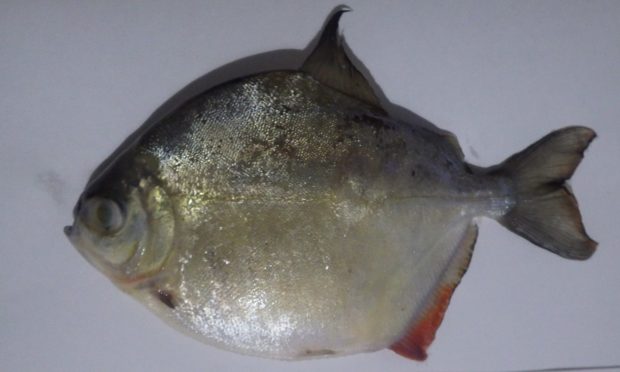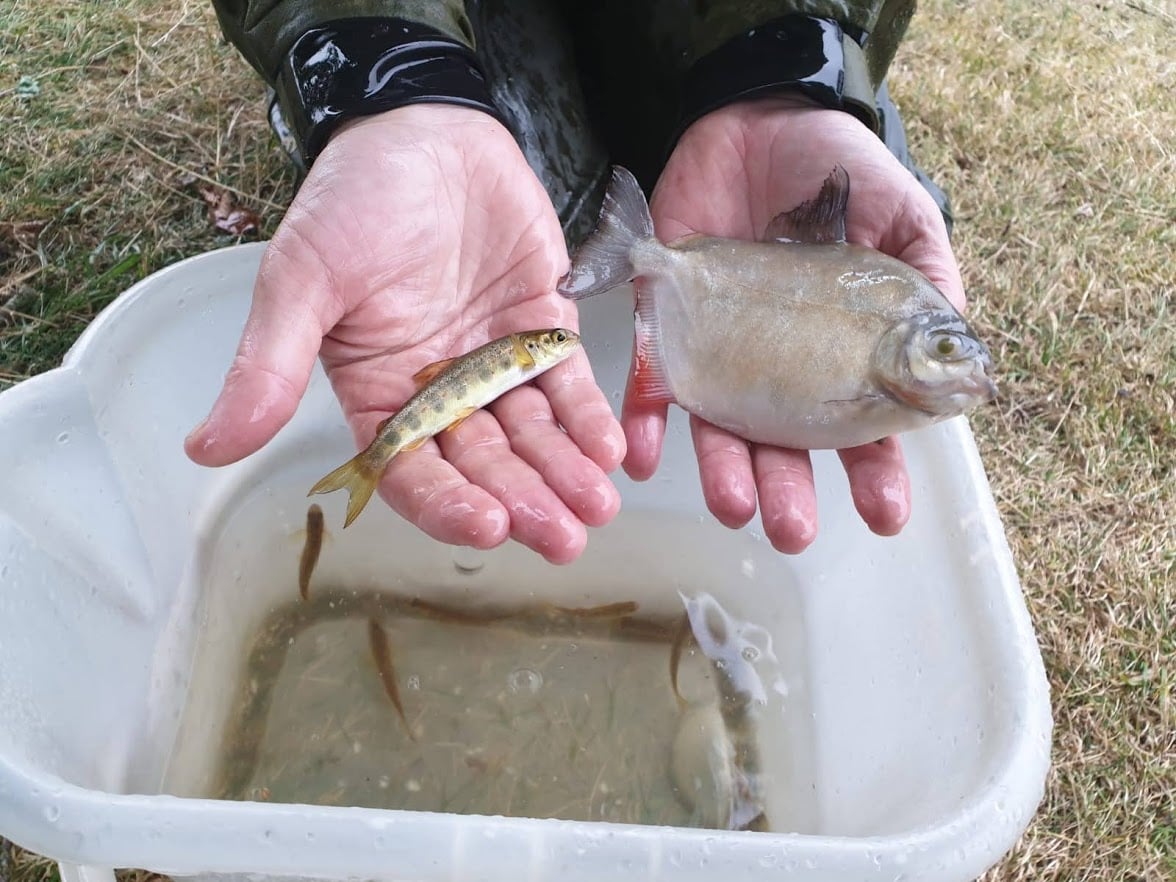A third species of non-native fish has been found in the River Ness.
Ness District Salmon Fishery Board has said the new fish, believed to be a metynnis argenteus, has been recovered from the body of water, raising fears the fish have been dumped from an aquarium.
Ness District Salmon Fishery Board first feared the metynnis argenteus may have been a piranha, however, assistance from members of the public has helped identify the fish as the silver dollar.
The metynnis argenteus one of a number of species which is known under the common name of a silver dollar and originates from Brazil but can be found in shallow waters across the northern area of South America.
The fish is a close relative of the piranha and pacu and is popular with fish keeping hobbyists.
The discovery comes after two Jaguar cichlid’s were pulled from the water on Monday evening with a third discovered last night.
The fishery board issued a statement on social media on Tuesday evening saying: “Following our report of non-native cichlid fish found in the River Ness yesterday, we headed out this evening to check for any more.
“We captured the expected juvenile Atlantic salmon, trout and eels as we worked upstream, before noticing what we initially thought was a large flounder. When scooped up with a hand net we saw what looks like piranha – we were shocked to say the least.
“Piranhas are native to the Amazon and are well known as aggressive predators with extremely sharp teeth.
“Luckily for us, this individual was already dead and hand been so for a little while.
“After a further search of the area, we found what we believe to be another dead Jaguar cichlid of the type recovered last night.
“It seems clear that someone has released these fish from an aquarium into the River Ness.
“Any release of non-native species into the wild is extremely irresponsible and could have significant negative impacts on our native fish stocks.
“The species found to date are all native to the warm climate of Central America and so had little to no chance of surviving in the cold waters of the River Ness.
“They could, however, pose a significant disease risk.”
.

